
The Lonely Outcast
By Storybird

06 Sep, 2023

Once upon a time, in a small seaside village, lived a little boy named Eli. He was different from the other children in the village. He had the ability to see things that others couldn’t.

Eli's eyes, vivid as the deep blue ocean, could discern the unseen. Like shadows in the daylight, whispers in the wind, and the pain hidden behind smiles. This gift, however, scared the villagers.

Their fear stemmed not from understanding but from ignorance. The more peculiar Eli grew, the more the villagers distanced themselves from him, further fueling their fear.

As time passed, Eli's solitude intensified. He was an outcast, a misfit whose presence was merely acknowledged out of fear. This rejection was too much for his tender heart to bear.

His loneliness manifested in his appearance. His once vibrant blue eyes grew dull, and his infectious smile faded. His spirit started to wither away in the sea of rejection.

The villagers' fear rose like a stormy tide. They concluded that Eli's presence was a bad omen. They decided to do something terrible, a decision born out of fear and ignorance.
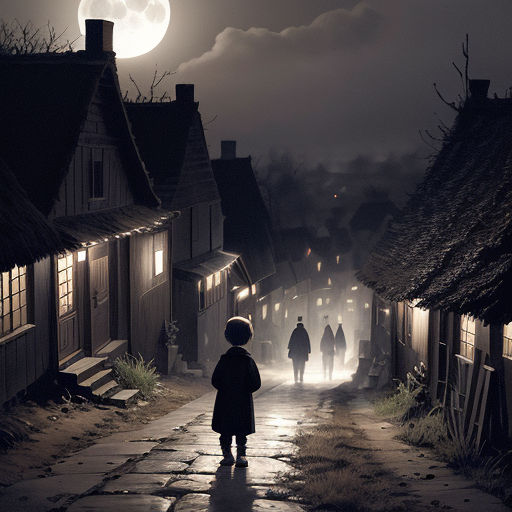
One fateful night, the villagers took Eli away. Their fear had blinded them to the point of committing an unforgivable deed. They killed the innocent boy and buried him on the outskirts of the village.

What they didn't know, however, was that ending Eli's life wouldn't end their fear. Instead, it marked the beginning of something even more terrifying, something that would haunt them for centuries.

The very next morning, the villagers woke up to a strange phenomenon. A bright light was hovering over the place where Eli was buried. It was an eerie sight that sent chills down their spines.
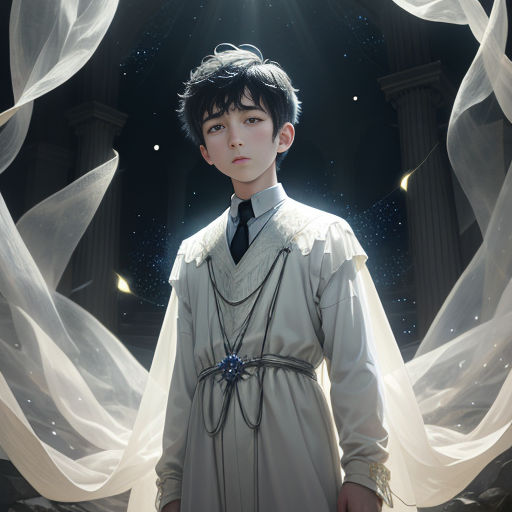
The light was Eli's lingering essence. His spirit was trapped between two worlds, unable to find peace. Out of fear and guilt, none dared to approach the light.
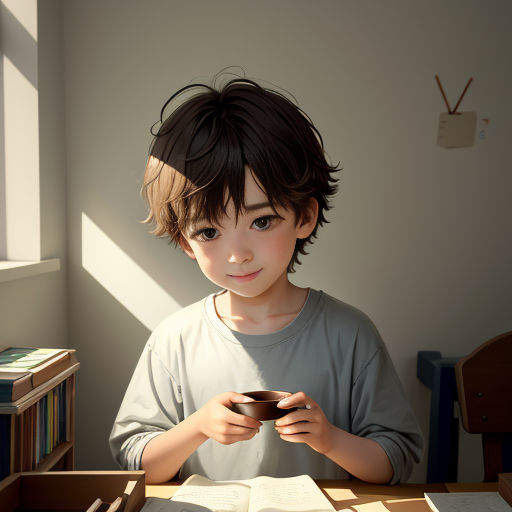
Days turned into weeks, weeks into months, and months into years, but Eli's glow never faded. It became a permanent part of their lives, constantly reminding them of their grave mistake.

Over time, the villagers' fear of the light grew into acceptance. They realized the enormity of their mistake, but it was too late to undo it. All they could do was live with the consequences.

As centuries rolled by, stories of Eli's extraordinary abilities and tragic fate spread far and wide. Every sight of the light was a stark reminder of the innocent boy wronged by his own people.

The villagers' descendants carried the burden of their ancestors' fear. They passed down the tale of Eli to their children, hoping they would learn from their forefathers' mistakes and not let fear dictate their actions.
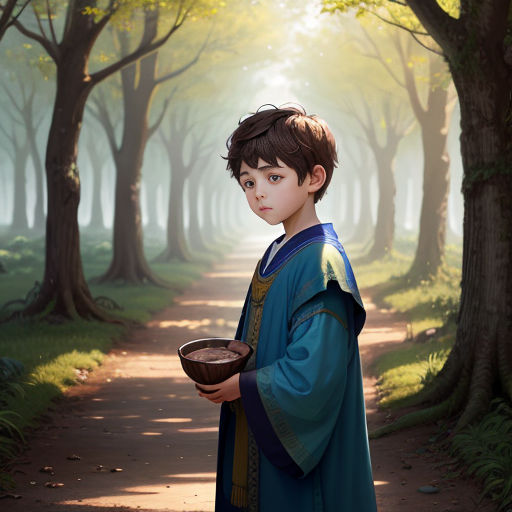
Meanwhile, Eli's light continued to shimmer, transcending time and space. His spirit, trapped in a world it didn't belong to, became a part of their village's story, visible yet enigmatic.
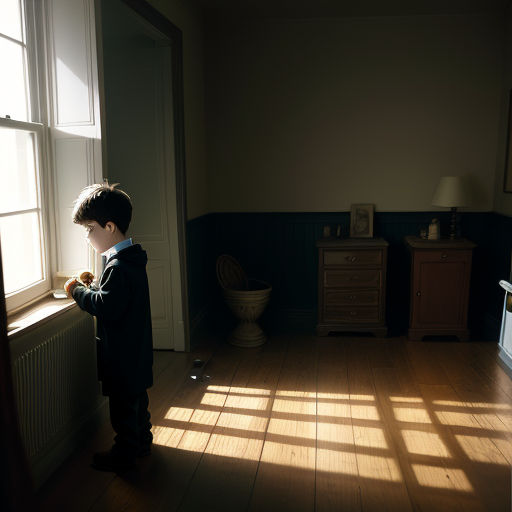
On some nights, they claimed to hear whispers of a child's laughter and the sound of footprints near the light. It was as if Eli was still there, trying to communicate.
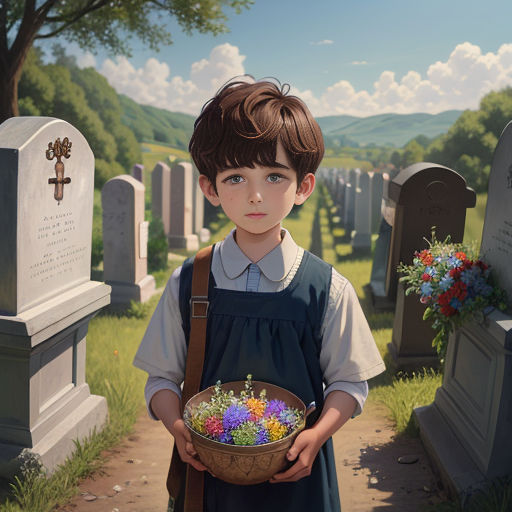
As the legend of Eli grew stronger, the villagers learned to respect and honor his memory. They started a tradition of bringing small offerings to the place where Eli was buried.
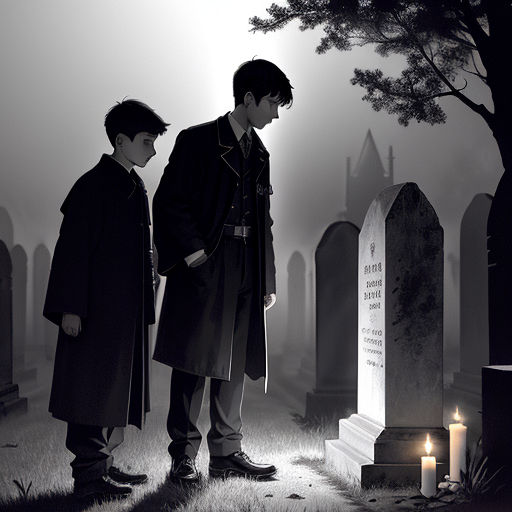
Every year, on the day of his death, the villagers gathered at his grave. They lit candles, prayed and apologized for their ancestors' actions, hoping to finally appease Eli's restless spirit.

However, Eli's spirit remained trapped, his light still shining brightly. His essence was bound to the village, a silent observer to the cycle of life and death, love and fear, acceptance and regret.

The villagers' fear had long dissipated, replaced by a sense of sorrow and regret. Eli had become a symbol of their collective guilt, a reminder of a past they couldn't change.

Over time, the villagers grew to understand Eli's abilities. They realized he was not a threat, but someone gifted. The fear and rejection faced by Eli was a result of their own insecurities.

They discovered that fear is a potent force that can cloud judgment and lead to terrible actions. They felt the full weight of their ancestors' mistakes and sought to prevent history from repeating itself.

Even after 9000 years, Eli's essence continued to exist. His light witnessed generations come and go, their lives entwined with his story. His presence had become an integral part of their existence.

The tale of Eli was passed down through generations, becoming a legend. His spirit was a reminder of their past, a beacon guiding them towards a future where fear wouldn't dictate their actions.
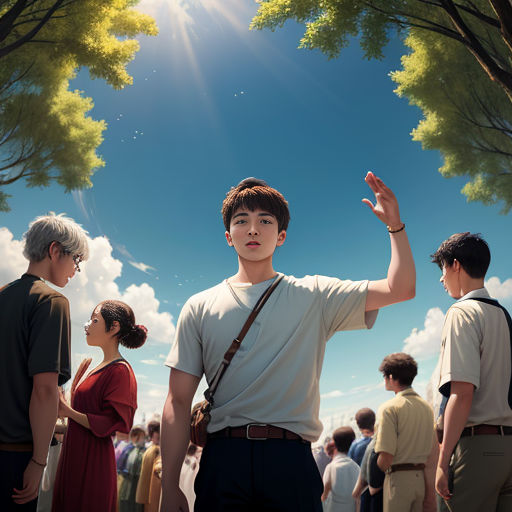
Eli's story taught them the importance of acceptance and understanding. His essence, the bright light that wouldn’t fade, was a testament to a boy who was different but not dangerous, misunderstood but not malevolent.

The people of the village eventually learned to coexist with Eli's spirit. His light, instead of being a symbol of fear, became a beacon of hope and remorse, a reminder of their village's painful history.
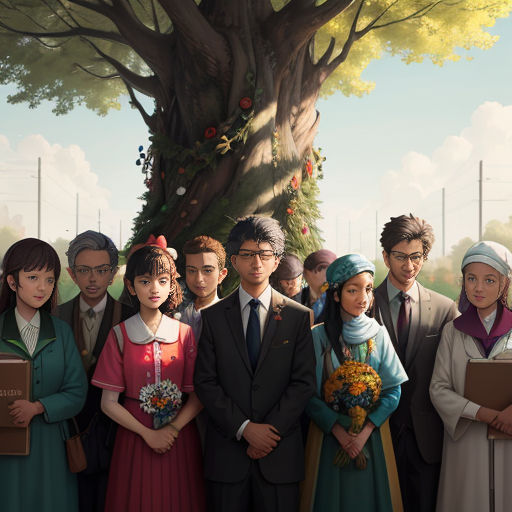
They hoped that one day Eli's spirit would find the peace it sought. Until then, they vowed to honor his memory, nurturing a society that wouldn't let fear cloud their judgment, as it had once done.

Eli's story served as a guiding light for future generations. It served as a reminder of the human capacity for fear and the resulting blindness, but also the potential for understanding, acceptance, and change.

To this day, Eli's light still shines brightly on the outskirts of the village. It remains as a symbol of a village's regret and a beacon of their hope for a more understanding and accepting future.

The lonely outcast, Eli, left behind a legacy that transcended time itself. His story, though tragic, became an enduring symbol of the need for empathy, acceptance, and the courage to embrace difference.
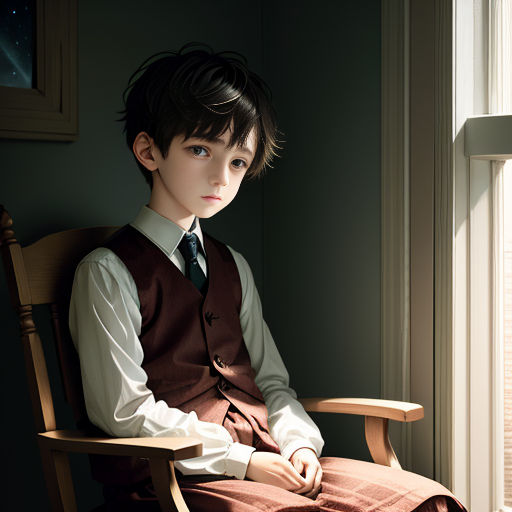
And so, Eli's spirit continues to live on, waiting for the day when it will finally find peace. Until then, his light remains, a gentle reminder of the little boy whose life was cut short due to fear and ignorance.

Eli's tale lives on, a lesson for generations to come. It signifies the power of understanding over fear, acceptance over prejudice, and the strength of a community to learn and evolve from its past.

And as long as Eli's light continues to shine, his story will guide the villagers, ensuring they never forget the importance of empathy and compassion. His legacy, though borne out of tragedy, will forever echo through the ages.

The story of the Lonely Outcast is not merely a tale of fear and regret but a parable of transformation and redemption. Eli's spirit and its everlasting light will forever be a beacon of hope and a symbol of change for the village.
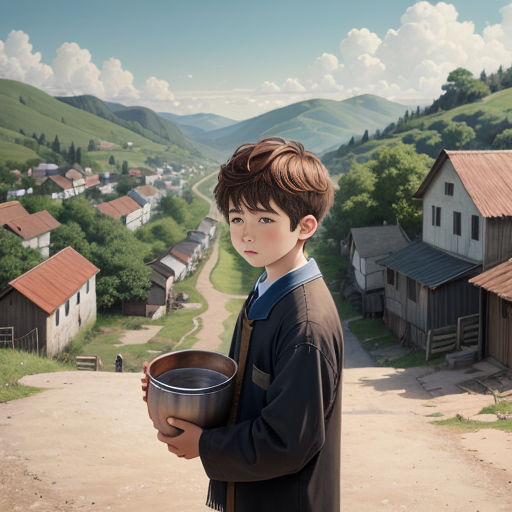
In the end, Eli's tale wasn't just about him. It was also about the people of the village, their ancestors, their descendants, their fears, their regrets, their growth, and their hope for a better, more understanding future.